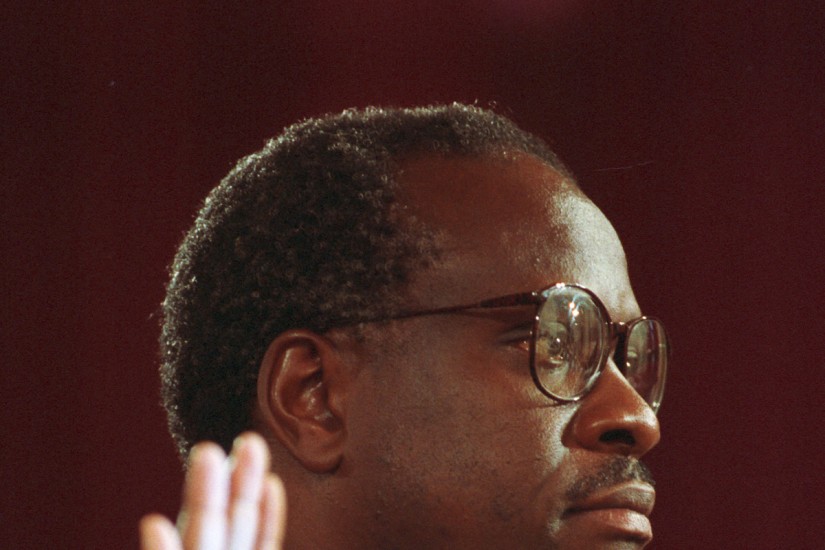I think for many people on the left, Clarence Thomas is just a monster, and that’s the beginning and the end of it. The book, I think, ends up showing that there’s a much more disturbing and unsettling monstrosity at the heart of his jurisprudence that you can’t understand unless you begin with some of these questions about black nationalism and racial pessimism; that is, because his monstrosity initially began from a place that, I think, many of us on the left can at least understand and imagine. The news ends up being worse than if you were to focus just on the familiar Clarence Thomas that people know.
But by the end of the book you begin to see that at the heart of Thomas’s jurisprudence is this belief that, in some ways, Jim Crow was a golden age for the development of black self-organization and black virtues. A word that recurs throughout Thomas’s writings is “survival,” which is a word that also features quite prominently in a lot of Afro-pessimist writing. He thinks that under Jim Crow, black people developed the habits, organizations, independence, and self-sufficiency to survive against all the odds; they managed to build up a thriving civilization and culture.
And here is where I would say his thinking moves more into the territory of traditional conservative thinking. It’s really a notion that, under conditions of the most abject adversity, there will be a summoning of more heroic spirits. For Thomas, those heroic spirits are found in black patriarchs; his is a very patriarchal vision. He thinks that the liberal rights revolution—whether it was on questions of criminal justice or the sexual revolution or economic rights— undid these conditions of adversity, thus creating generations of black men who not only cannot take care of women and children and their communities, but who cannot take care of themselves.
What the white carceral state does is to recreate these conditions of adversity from decades and centuries past. And, for Thomas, there’s a horrible hope at the heart of that, which is that a new generation of black patriarchs will emerge under these conditions of adversity and will shepherd their people to safety and survival. Not to emancipation, not to the promised land, but to something like survival.
